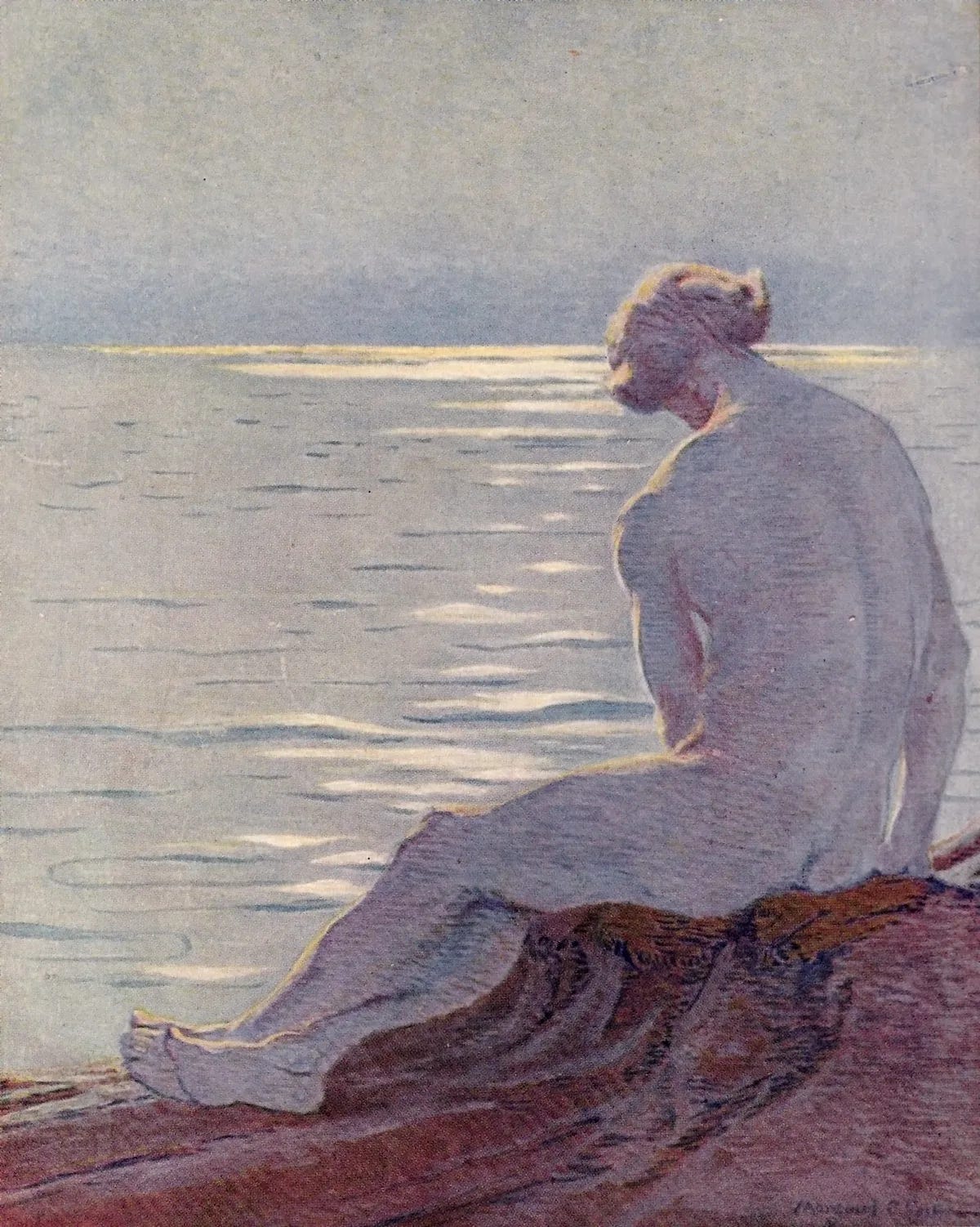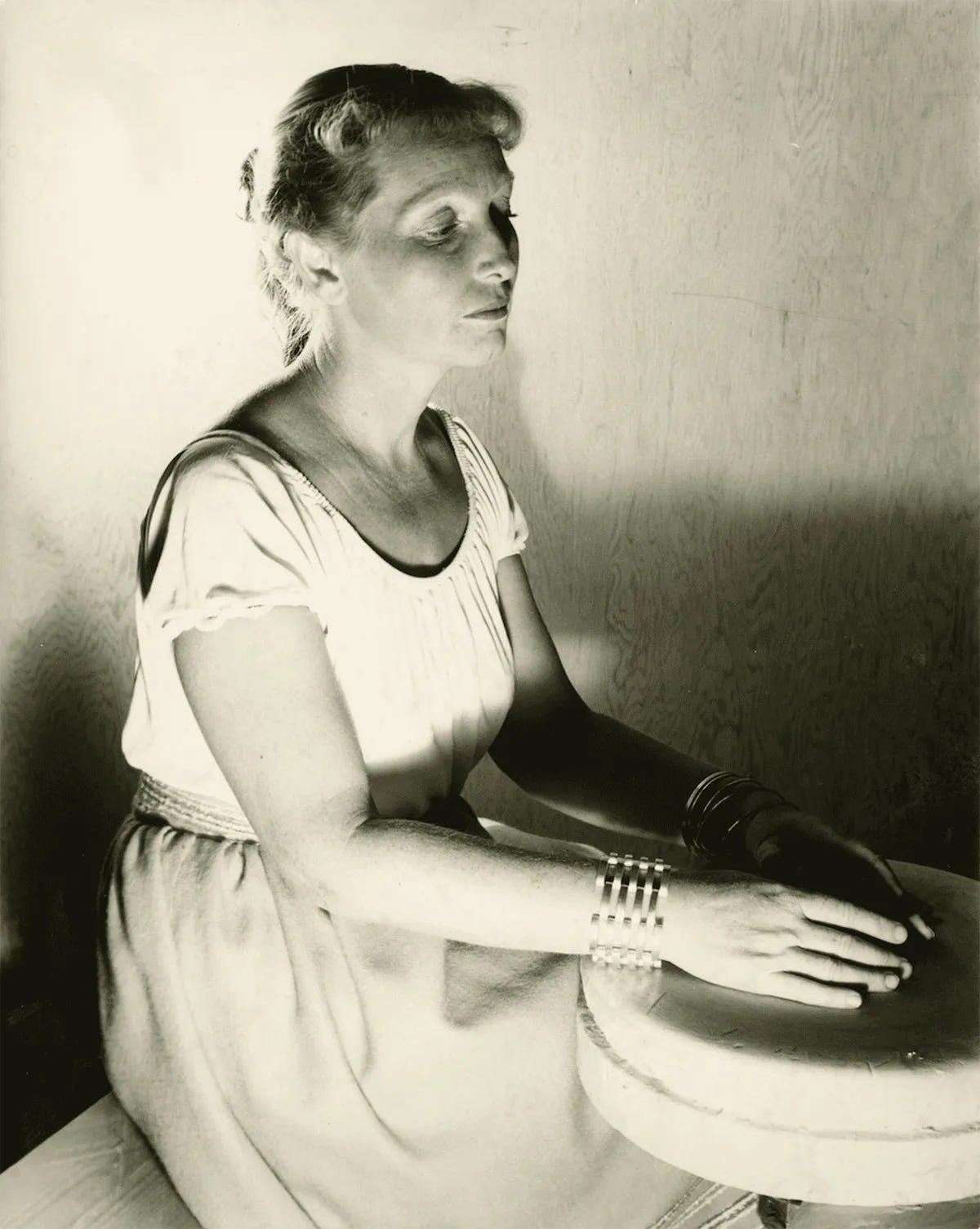Questioning our maps and models of the universe with Maria Popova, plus NASA's meatball vs. worm.
Maria Popova’s The Marginalian (née Brain Pickings) was the first and only newsletter that I subscribed to for many years (and believe me—I won’t be stopping any time soon). She writes elegantly and so personally about themes of philosophy, art, design, literature, and what it means to be human. I can’t put my finger on it, but it always feels celestial to me—as if she’s in the stars and transmitting her messages to me through a gentle whisper. She’s been preforming this magic to others for 17 years.

Every year she adds to her life learnings list, which I have found myself hurriedly scribbling into notebooks for as long as I can remember. I use them as my framework—kind of like when I wrote earlier about Ioana Petresco’s life criteria lists. I become giddy when a new item arrives on Maria’s list each year. Here it is below, simplified, or you can read the wisdoms expanded with meaningful descriptions:
Allow yourself the uncomfortable luxury of changing your mind.
Do nothing for prestige or status or money or approval alone.
Be generous.
Build pockets of stillness into your life.
You are the only custodian of your own integrity.
Presence is far more intricate and rewarding an art than productivity.
Expect anything worthwhile to take a long time.
Seek out what magnifies your spirit.
Don’t be afraid to be an idealist.
Don’t just resist cynicism—fight it actively.
Question your maps and models of the universe, both inner and outer, and continually test them against the raw input of reality.
There are infinitely many kinds of beautiful lives.
In any bond of depth and significance, forgive, forgive, forgive. And then forgive again.
Choose joy.
Outgrow yourself.
Unself.
Everything is eventually recompensed, every effort of the heart eventually requited, though not always in the form you imagined or hoped for.
I always gravitate toward: number 4 (because I become hyper when overwhelmed and need downtime in order to not lose my head), 8, 10, 11 (I ADORE how this is written), and 12. Sometimes I find myself chanting one of them in my head at a random moment: “Build pockets of stillness!” “Question your maps and models of the universe!” I'm already insanely curious about which lines speak to you, so feel free to leave a comment about it below.
Maria wrote a book called Figuring in 2019—it’s a tome and worth of getting yourself lost in. Her own synopsis of the book is poetry on its own:
Figuring explores the complexities, varieties, and contradictions of love, and the human search for truth, meaning, and transcendence, through the interwoven lives of several historical figures across four centuries—beginning with the astronomer Johannes Kepler, who discovered the laws of planetary motion, and ending with the marine biologist and author Rachel Carson, who catalyzed the environmental movement. Stretching between these figures is a cast of artists, writers, and scientists—mostly women, mostly queer—whose public contribution has risen out of their unclassifiable and often heartbreaking private relationships to change the way we understand, experience, and appreciate the universe. Among them are the astronomer Maria Mitchell, who paved the way for women in science; the sculptor Harriet Hosmer, who did the same in art; the journalist and literary critic Margaret Fuller, who sparked the feminist movement; and the poet Emily Dickinson.
Emanating from these lives are larger questions about the measure of a good life and what it means to leave a lasting mark of betterment on an imperfect world: Are achievement and acclaim enough for happiness? Is genius? Is love? Weaving through the narrative is a set of peripheral figures—Ralph Waldo Emerson, Charles Darwin, Elizabeth Barrett Browning, Herman Melville, Frederick Douglass, Caroline Herschel, Nathaniel Hawthorne, Walt Whitman—and a tapestry of themes spanning music, feminism, the history of science, the rise and decline of religion, and how the intersection of astronomy, poetry, and Transcendentalist philosophy fomented the environmental movement.
Below are some simultaneously dense-yet-delicately-written articles of Maria’s that I enjoyed. Boy was it tough to choose only a few!
I Work Like a Gardener: Joan Miró on Art, Motionless Movement, and the Proper Pace of Creative Labor
Wondrous Beauty: How Elizabeth Patterson Bonaparte Pioneered the Ideal of the Independent Woman

Other Notes:
The New Yorker wrote about NASA’s two logos: “the worm” and “the meatball.” I had no idea that there were pleasantly goofy names attached to both of them, and I’m obsessed with the idea. Which logo camp are you supporting?
I caught a few glimpses of A Field Guide to American Houses in my mind earlier this month as I was in Arizona visiting family. Being stateside always makes my thoughts turn to vernacular architecture. Arizona was where I was born and raised, but its architecture (except for some of the really wonderful midcentury gems that have been preserved) has always been a thorn in my side. So. much. brown. stucco. and. flatness. Ugh! Here’s Alexandra Lange on the book’s author, Virginia McAlester, and why she “is the most popular architecture writer in America.” With her hefty field guide in your arms, you’re an instant expert in the everyday architecture of the U.S.A.
If you’ve done your homework from above and clicked on literally any link leading to Maria Popova’s site, you’ll notice that you’ve been sucked into an ever-expanding universe. It’s all-consuming! A delight! A book that makes me feel this way is Italo Calvino’s post-modern If on a Winter's Night a Traveler. It’s absolutely one of my top three favorite books because I’ve simply never read anything like it. This book transports and transcends!
On my watch list is the 1968 French film Stolen Kisses, which is about a man accidentally becoming a private detective in Paris and all of his professional and amorous missteps.
xx
Please seek out what magnifies your spirit this week!!
Kelsey






I don’t remember how I found my way to your Substack, but I sure am glad to have arrived. Thank you for all these wonderful gifts :)